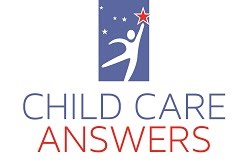
The American Academy of Pediatrics (AAP) has updated and revised its position statement on media and technology usage by children. Up until recently, their recommendation to parents was no screen time for children under the age of two. Taking into consideration new research and new habits, the AAP is now shifting their focus from what is on the screen to who else is in the room.
For littles under the age of 18 months, the AAP still says no screens are best, with the exception of live video chat with loved ones. Many families use a live video chat app like Skype to stay in touch with relatives far away. While live social interaction trumps virtual visits with Grandpa, there is some research that says infants as young as six-months old are emotionally-engaged by playing live peekaboo with Grandma on Skype (AAP, 2016).
What about older toddlers? Aren’t they learning new words and increasing their vocabulary with the Peekaboo Barn and other phone apps? While there can be minimal gains in language development through educational apps, this happens only if adults are sitting alongside them and engaging in app dialogue with their toddler; again, it’s not so much what is on the screen, it’s who else is engaging with the toddler.
When it comes to preschoolers, content plays a crucial role. Shows like Sesame Street, which address the evolving health and developmental needs of children have been shown to improve cognitive, literacy, and social outcomes for children ages three to five (AAP, 2016). Nonetheless, many preschool apps which are filed under the category of “educational” have no curricular basis, target only rote academic skills, and offer little opportunity for parent-child interaction.
So, what can parents take away from this progressive revision about screen time?
- For children under 18 months of age, no screen time is still best.
- Adult interaction with children during media use is crucial, especially if you are hoping for positive child development outcomes.
- Just because you’re looking in the “education” category in the Apple Store, doesn’t mean it’s an educational app.
- One hour of high-quality screen time should be the maximum for children older than age two.
- Set limits on screen time for older children. Setting limits teaches children how to gain self-control, which in turn allows them to regulate their behavior so that it is socially acceptable.
- Keep mealtimes, bedrooms, and play times screen free.
- Turn the screens off at least one hour before bedtime. Exposure to screen media in the evening is associated with shorter sleep duration than those with no evening screen media.
Cover image by Flickr user Intel Free Press, Creative Commons license.






















